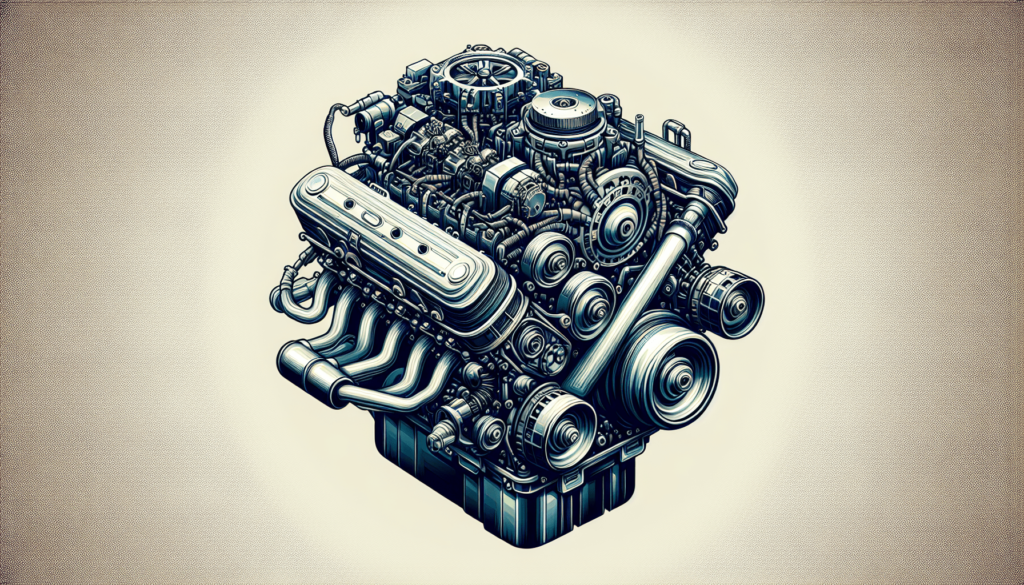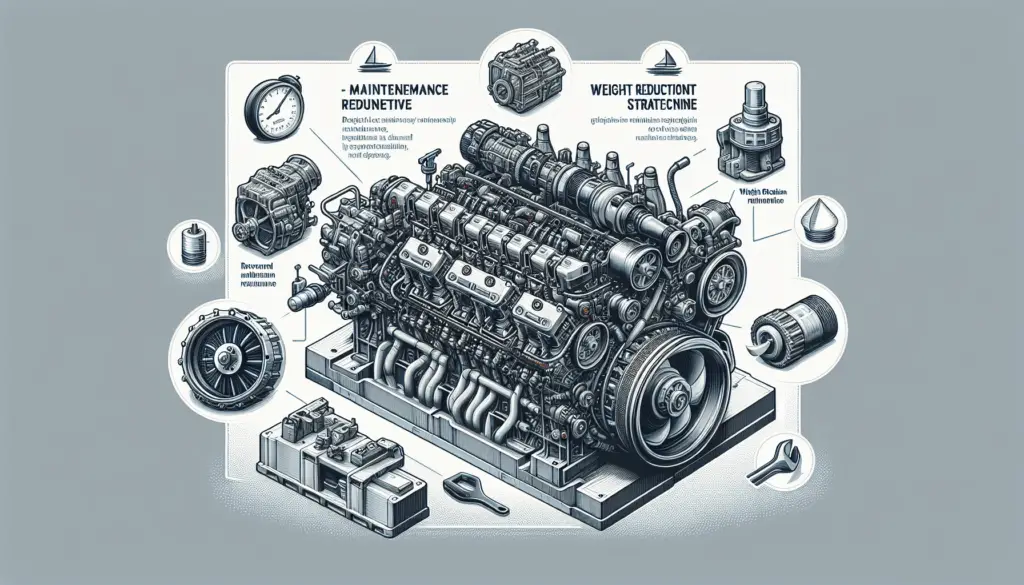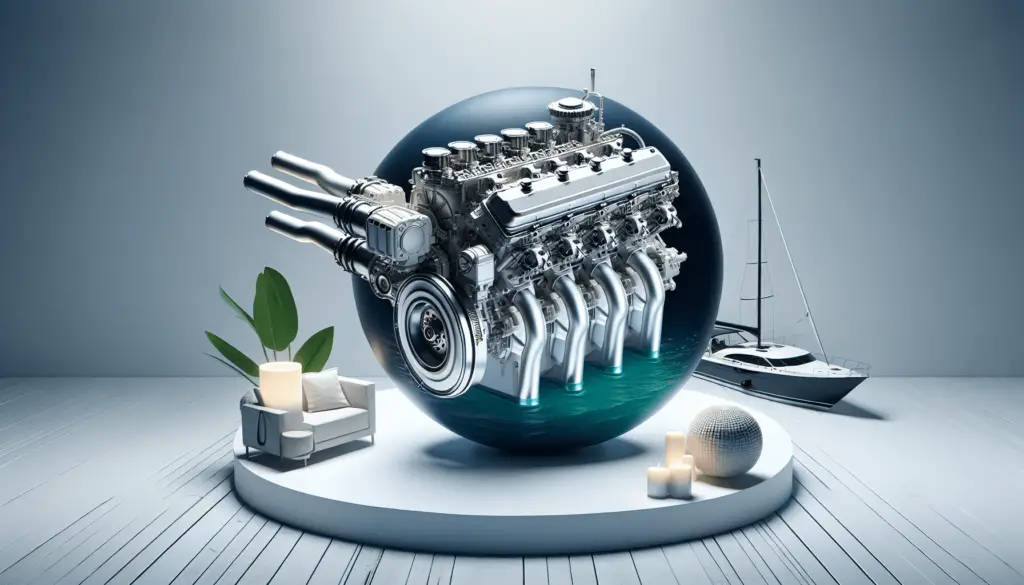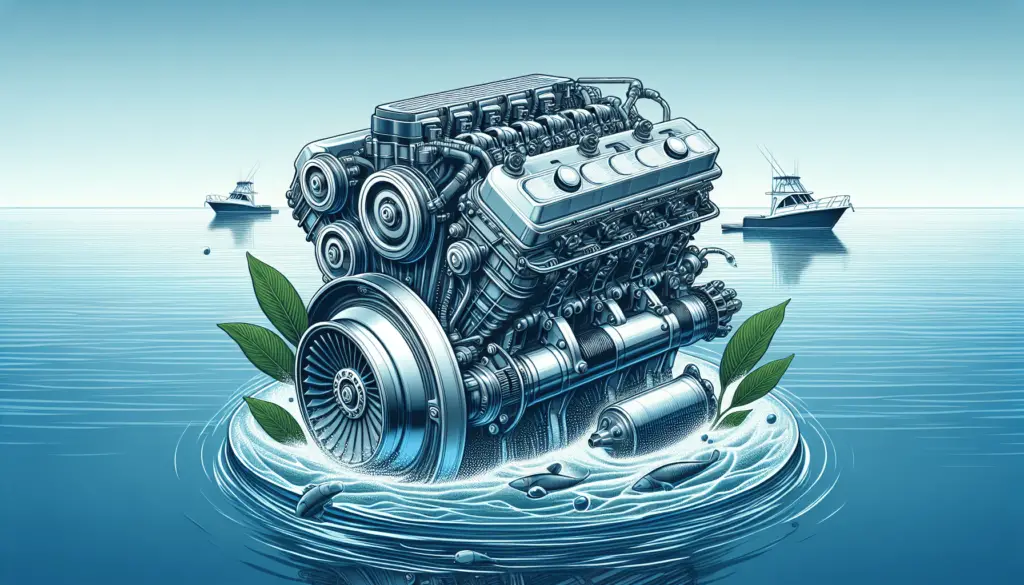In “How To Reduce Fuel Consumption In Boat Engines“, you will discover a wealth of practical tips designed to help manage and decrease how much fuel your boat engine uses. This article offers insights into the most effective techniques that you can easily apply for optimising fuel efficiency. From simple engine maintenance strategies to understanding fuel-efficient boat operation behaviours, you’re set to learn how to not only lessen your boating expenses but also contribute to environmental preservation.

Understanding Your Boat’s Fuel Consumption
Operating a boat opens up to an adventure of discovery and relaxation. However, the joy can be short-lived if you don’t understand your boat’s fuel consumption rate. There are several aspects you need to understand about fuel consumption.
Knowing the type of engine your boat has
Every boat has an engine, but not all boat engines are the same. The type of engine your boat has will significantly affect the total fuel consumption. There are mainly two types of boat engines: Outboard and Inboard engines. Outboard engines tend to be more fuel-efficient than inboard engines since they are lighter and generate less heat. They are typically found on smaller boats. On the other hand, inboard engines are common on larger boats and use up more fuel.
Determining fuel consumption per hour based on boat’s engine size
Your boat’s engine size is instrumental in determining the fuel consumption per hour. Typically, the larger the engine, the higher the fuel consumption. It’s advisable to check the manufacturer’s specifications to get an accurate measure of your engine’s fuel consumption rate.
Understanding the effect of boat’s weight on fuel consumption
The weight of your boat significantly affects the amount of fuel it consumes. A heavier boat will require more energy to move through the water, leading to increased fuel consumption. Always ensure to maintain the boat’s weight within the recommended range.
Maintaining the Boat Engine Regularly
Regular maintenance of your boat’s engine is crucial. An engine that is in good condition operates more efficiently, thus burning less fuel.
Scheduling regular service for your boat
Regular servicing of your boat helps maintain the fuel efficiency of the boat. Keep a reliable service schedule and follow it consistently. This includes oil changes, filter changes, and regular checks of the boat’s mechanical and electrical systems.
Checking and cleaning the fuel injectors
Part of maintenance involves checking and cleaning the fuel injectors. Dirty or clogged fuel injectors can reduce the efficiency of the fuel combustion process, thereby increasing fuel consumption.
Replacing worn-out parts
Worn out parts can result in less efficient operation and increased fuel consumption. Ensure that all parts, especially those that directly participate in combustion or motion, are in good condition.
Using quality engine oils and fuels
Quality oils and fuels are essential for maintaining the health of your engine. High-quality oils reduce friction amongst moving parts, thereby conserving fuel. On the other hand, high-quality fuel ensures an efficient combustion process.

Optimizing Boat Load
Managing your boat load can have a significant impact on fuel consumption. It’s crucial to always carry only necessary items and regularly check the boats balance.
Reducing unnecessary weight onboard
Every extra pound on your boat adds to the weight the engine must push through the water. Lighten your boat load by carrying only the items you need.
Balancing weight on the boat for better performance
The balance of your boat can affect its performance and fuel efficiency. A perfectly balanced boat will cut through the water more efficiently, reducing drag and thus, fuel consumption.
Choosing light materials when upgrading or remodeling the boat
When it’s time to upgrade or remodel your boat, utilize lightweight materials. That will help to maintain a manageable total weight, boosting fuel efficiency.
Driving Efficiently
Efficient driving plays a significant role in fuel conservation. It’s important to be aware of how you are driving your boat.
Avoiding rapid acceleration and deceleration
Rapid acceleration and deceleration substantially increase fuel consumption. Gradual acceleration and deceleration is the key to fuel efficiency.
Maintaining the optimal speed for the boat
Every boat has its own sweet spot – the speed at which it travels most efficiently. Maintaining the optimal speed not only ensures a smoother ride but also conserves fuel.
Maximizing the use of currents and tides
Using the currents and tides to your advantage can greatly reduce fuel consumption. Going with the current rather than against it is a smart and fuel-efficient move.

Proper Propeller Maintenance
The propeller is an essential part of your boat that plays a big role in determining fuel consumption.
Ensuring the propeller is the right size and pitch for your boat
Having a propeller that is correctly sized and pitched for your boat is crucial. The right propeller can ensure that your engine operates in its most efficient RPM range, thereby maximizing fuel efficiency.
Checking for any damages on the propeller
Regularly inspect your propeller for damages. Even minor dents or bends can affect performance and efficiency, leading to increased fuel consumption.
Cleaning and checking the propeller regularly for performance optimization
A clean and well-maintained propeller contributes to a more efficient ride. Always ensure your propeller is clean and free of any debris that could affect its performance.
Trimming Your Boat Properly
Trimming a boat is yet another essential aspect of reducing fuel consumption. Conduct a proper boat trim to make the boat run more efficiently.
Understanding basic trim adjustments
Trimming involves adjusting the boat’s angle in relation to the water. Properly trimmed boats run smoother and use fuel more efficiently.
Adapting trim according to sea conditions
Sea conditions can dynamic and it’s important that the trim adjustments are altered to match. Weather conditions could require either positive or negative trim to maintain an efficient ride.
Knowing how to trim the boat at various speeds
Boats respond differently to trim adjustments at various speeds. So, understanding how to trim your boat at different speeds can be crucial for efficient fuel usage.

Keeping the Boat’s Bottom Clean
The boat bottom plays a huge role in determining its resistance to movement. A clean boat bottom consequently means reduced fuel consumption.
Cleaning the boat hull regularly
Regular cleaning of the boat hull is crucial. Accumulated dirt, algae, or barnacles increase resistance to the movement of your boat hence increasing fuel consumption.
Applying anti-fouling paint
Applying anti-fouling paint helps in keeping the boat’s bottom clean. This paint repels the growth of any organisms that increase drag.
Recognizing the effect of dirt and barnacles on the boat’s fuel efficiency
Dirt and barnacles on the boat’s bottom increase drag, affecting the boat’s fuel efficiency. Recognizing this fact and taking the necessary measures to keep the boat’s bottom clean is vital.
Investing in Fuel Efficient Technologies
Adapting newer technologies can increase your boat’s fuel efficiency significantly.
Considering fuel-efficient boat engines
Today, there are more fuel-efficient boat engine options available in the market. Investing in these engines may mean a substantial cut down on fuel costs in the long run.
Installing a fuel flow meter
A fuel flow meter can provide real-time data on fuel consumption, enabling you to manage your usage better.
Learning about hybrid or electric boat technologies
Hybrid and electric boat technologies are revolutionizing the boating world. Although they may require an initial investment, they pay off with significantly lower fuel costs over time.
Planning Your Route Efficiently
Proper planning of your route can also be a great way to manage your boat’s fuel consumption.
Understanding the impact of distance and speed on fuel consumption
The total distance and speed significantly determine the total amount of fuel consumed. Understanding this principal can be key in managing fuel consumption.
Using GPS and other navigation tools
Modern navigation tools like GPS can help in planning the most efficient routes, providing potential fuel savings.
Considering weather and water conditions in route planning
Weather and water conditions can greatly affect fuel consumption. Plan your route considering these factors to boost fuel efficiency.
Checking Fuel Tanks and Systems
The condition of your fuel tanks and system contributes to your boat’s fuel efficiency.
Inspecting fuel tanks for potential leaks
Fuel leaks are not just only dangerous, but they can also drain your tank. Regular inspection of your fuel tanks is hence crucial.
Understanding the effects of condensation in the fuel tank
Condensation in the fuel tank can lead to water in your fuel. Ensure that your fuel systems are properly ventilated to reduce this problem.
Maintaining proper ventilation in fuel systems
Proper ventilation allows water vapor to escape, reducing the chance of condensation. Regularly check and maintain your fuel system ventilation for optimal performance.
That’s it! Now you know how to reduce fuel consumption in boat engines. It’s all about understanding, maintaining, and checking all the aspects directly or indirectly affecting fuel efficiency of your boat. By focusing on these points, you will not only reduce your fuel costs but also increase the longevity of your boat and its components.

